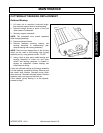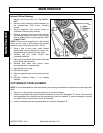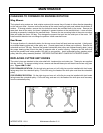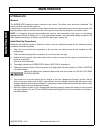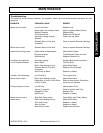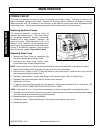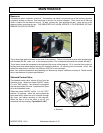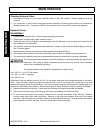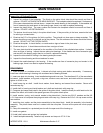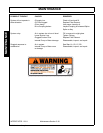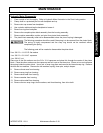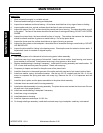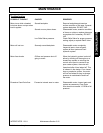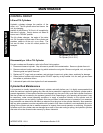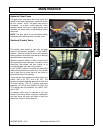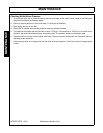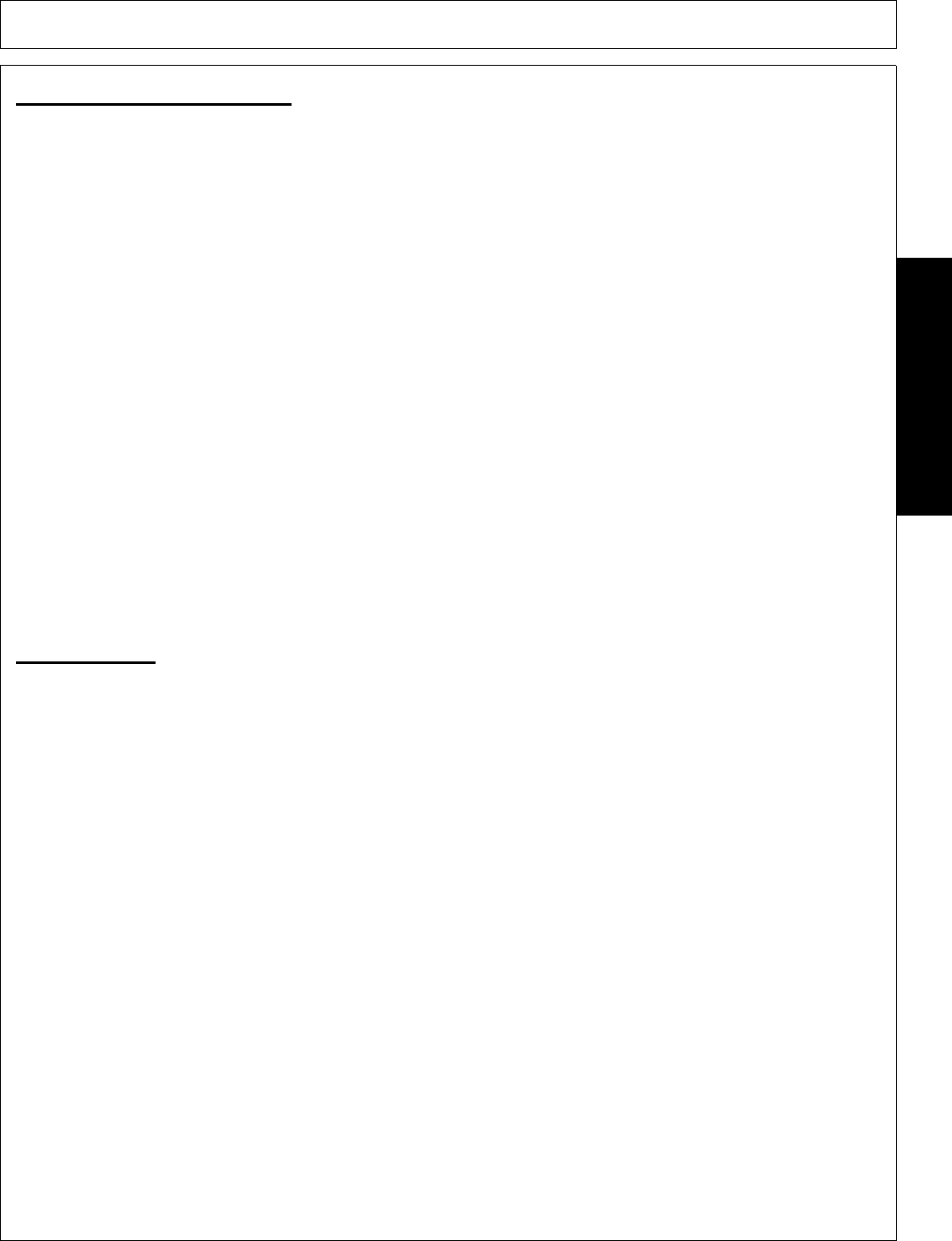
MAINTENANCE
INTERSTATER 02/11 Maintenance Section 5-17
© 2011 Alamo Group Inc.
MAINTENANCE
Inspection of Hydraulic Pump
1. Inspect flat surface of the backplate. The finish on the piston block side should be smooth and free of
grooves. DO NOT LAP BACKPLATE WEAR SURFACE. The backplate should be replaced if it shows any
of the wear characteristics outlined above. Inspect the needle bearing in the backplate. If the needles are
free of excessive play and remain in the bearing cage, there is no need to replace the bearing.
2. Inspect the piston block. The wear surface that contacts the backplate should be smooth and free of
grooves. DO NOT LAP PISTON BLOCK.
3. The pistons should move freely in the piston block bores. If they are sticky in the bore, examine the bore
for scoring or contamination.
4. Examine the O.D. of the pistons for finish condition. They should not show wear or deep scratches. The
shoes should be a snug fit on the ball end of the pistons. The flat surfaces of the shoes should be flat and
smooth. DO NOT LAP THE PISTON SHOES.
5. Examine the spider. It should be flat, no cracks and no signs of wear in the pivot area.
6. Examine the pivot. It should be smooth and show no signs of wear.
7. The cam plate should be inspected for the condition of the finish of the polished shoe surface. It should
show no signs of scoring. Inspect the cam plate pivot bearings. If the needles are free of excessive play
and remain in the bearing cage, there is no need to replace the bearing.
8. Inspect the drive shaft for fretting in the bearing and spline areas.
9. Inspect the thrust bearing and thrust washers for wear.
10. Inspect the needle bearing in the housing. If the needles are free of excessive play and remain in the
bearing cage, there is no need to replace the bearing.
REASSEMBLY
1. Clean all parts in a suitable solvent. Lubricate all critical moving parts before reassembly. If necessary,
install new needle bearing in housing with numbered end of bearing outward.
2. Insert cam plate into housing. Insert needle bearings and inner race. The chamfered I.D. of the race should
be inward. Install washers, o-ring seal, o-ring cove, trunnion cover, seal cover, and retain with four screws and
tighten to 36-48 in. lbs.
3. Install snap ring on shaft. Install thrust washer, thrust bearing, and second thrust washer. Secure with
second snap ring.
4. Install shaft in housing and install washer and shaft seal and retain with snap ring.
5. Compress pin keeper and install in the spline of the piston block. Install the three pins with head end to the
inside of the block, and install in the special grooves of the piston block spline.
6. Install washer, spring, and second washer in the piston block. Use the two 3/8 I.D. washers and the 3/8
x 3-1/4 cap screw to compress the spring and retain with snap ring. Remove the 3/8 x 3-1/4 cap screw and the
two washers.
7. Install the pivot, spider, and the piston assemblies in the piston block. Install this assembly in the housing
assembly. The piston shoes must be in contact with the cam plate. Be sure all the parts are in their proper
position.
8. Clamp this assembly in a protected jaw vise with the open end of the housing up.
9. Install new gasket.
10. Install relief valves and springs into backplate.
11. Install backplate assembly. Install six cap screws and torque to 27-31 ft. lbs.



